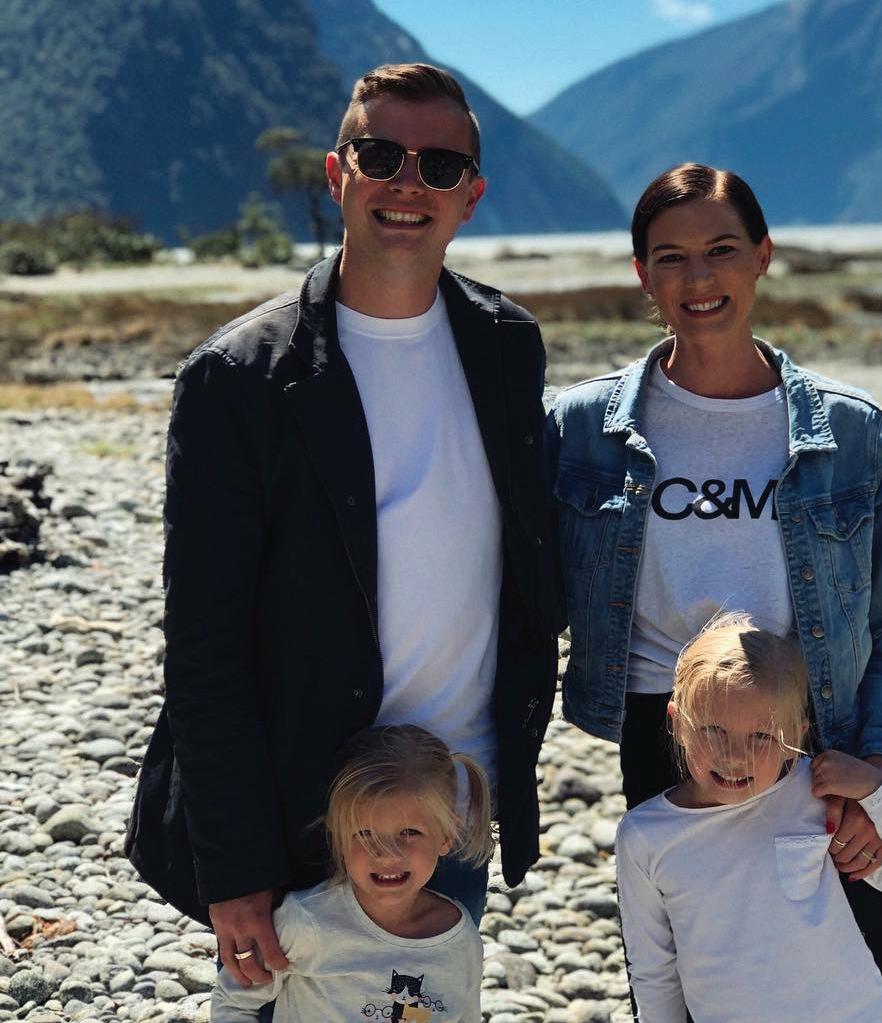
4 minute read
Back in business
By JOSIE ADAMS
2020 has seen many local businesses living in limbo, keeping their heads above water and waiting for a return to ‘normal’ or at least a bit closer to it. But what if riding those waves of change could initiate innovation and partnerships, making them stronger than ever? Steve Claydon thinks it can.
Entrepreneur, author, motivator and the architect of a flawless sales strategy, the Toowoombabased business consultant, proud husband and father of two, has seen his fair share of challenge in 2020. Steve’s not going to sugar-coat it. He admits it’s been painful.
The previous couple of years, Steve and his business partner, Darcy J Smyth, developed an immersive training event where personal and professional learnings were developed through playing a highly strategic game, described as a sales-type Survivor. The Sales Game was set to make their business Why Bravo a success.
“2020 was set to be the biggest year for us ever. We had managed to crack the US market and had a bunch of opportunities in Australia, New Zealand and the US already booked into the calendar,” Steve said. “We were to fly out to New Zealand the next day. Then we got a message saying the airports were closed. “From there it was a downhill mess,” he said.
“We went from doing over 100 flights a year to now, zero. Our focus was always on face-to-face consultation and experiential learning. Our business model was essentially void.”
In a state of shock, Steve said he knew the only option was to put The Sales Game on a virtual platform.
“We honestly thought that it was impossible to run virtually,” he says.
“But that’s the one thing that I think COVID-19 has taught us more than anything. We need to be really careful about what we think is impossible.
“We have now been able to open the business up to entirely new locations, with clients joining us from the UK, Canada, Denmark, Sweden, India, even Belarus. Look, if someone had told me that this is what our business would look like in 2020, I would say they were joking. But you’ve got to roll with it.”
And if the ability to innovate through these changes is the key, it’s a relief to know some things have stayed the same. In business, Steve said the psychology of selling has essentially stayed the same. At its very foundation, it’s about solving problems.
“Humans have always had problems and we will continue to have problems. But has the pandemic changed those problems? Yes. Absolutely. We talk about a new world; a new normal. So, let’s think about the new problems. And that’s where future industry and business are going to come from – solving our new problems.”

In saying that, though, he admits the days of the hard sell are probably over, as consumers reprioritise what they consider as value.
“Perhaps previously it was all about business. But I think ultimately, consumers have a more holistic approach when it comes to looking at businesses they want to deal with.
“It’s not just about the product or the solution or even the service anymore. The curtain seems to be opening, and I think consumers will respond positively to sharing stories behind businesses.”
Local, face-to-face small businesses may just have the upper hand too. When discussing post-pandemic consumer trends, it’s not only the business’s back story. Patriotism and customisation are also the rise.
“We care more about how things are made, where things are grown. We don’t just want to be a single buyer; we want to be a collective buyer and to be a part of a community, part of something that’s bigger than ourselves.”
But with a recession declared and unemployment in Queensland reaching 8.8 per cent in July, how can local consumers support the small and local businesses they love when money is so tight?
“The way I think about value and sharing value is in three areas: knowledge, network and capital,” Steve said.
“And while you may not be able to support your local business right now with capital, you can support them by sharing your network, or sharing your insights, experiences or knowledge.
“You know there is so much power in being a buyer right now. And I think businesses would love to know what they can do better.”
Those values can also be used business to business, which ultimately may be the difference between boom or bust in the current economic climate.
“From a tactical perspective, I think one of the most important things for small local business is to look at strategic partnerships. There’s an opportunity for businesses to work collaboratively and complement each other and this goes for not only sharing knowledge and sharing networks, but also it could potentially relieve the problem of capital that many businesses are struggling with right now.
“I like to think that COVID-19 has put a lot of businesses in hospital. You know, you might have had a great business previously. Now, through no fault of your own, you’re in hospital and things aren’t great. It’s a long road to recovery.
“Then you look around and you realise how many other businesses are in hospital. So, then it becomes more like ‘okay, so how do we all get out and start again? How can we support each other and grow stronger?’
“And I truly hope that this is what will happen to local business. That eventually it comes back stronger than ever.”
Steve Claydon is the author of several books including The Opposite Effect, The Project Principle, The Future of Selling and children’s book Sammy the Salmon. He is also the co-creator of The Sales Game.
Steveclaydon.com
Whybravo.com Sales.game










